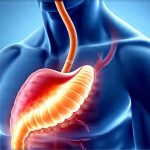Many people experience a fluctuating landscape of digestive discomfort, but a surprisingly common observation is that symptoms seem worse in the morning. This isn’t necessarily indicative of a serious underlying condition, but understanding why this phenomenon occurs can be incredibly empowering for managing and potentially mitigating those early-morning struggles. From bloating and gas to heartburn and nausea, the specific complaints vary widely, making pinpointing the cause challenging. It’s important to remember that everyone’s digestive system is unique, influenced by factors ranging from diet and stress levels to sleep patterns and pre-existing conditions. You might also find relief exploring digestive enzymes for symptom management.
The initial hours after waking often reveal a concentration of discomfort that isn’t present – or isn’t as noticeable – throughout the rest of the day. This can be frustrating; you may have woken up feeling relatively okay, only to find yourself grappling with digestive issues before you even have your coffee. Exploring these morning symptoms requires looking beyond simply what was eaten for dinner the night before and considering the physiological processes that unfold during sleep and immediately upon waking. It’s a complex interplay of hormonal shifts, altered motility, and potentially even psychological factors. Understanding apple cider vinegar’s role may also provide helpful insight.
The Overnight Shift: What Happens While You Sleep?
During sleep, our digestive system doesn’t exactly shut down, but it does transition into a different mode. Gastric emptying—the rate at which food moves from the stomach to the small intestine—slows considerably. This is partly because we aren’t actively consuming food, and partly due to changes in hormone levels. Melatonin, often dubbed the “sleep hormone,” plays a role here, as does a general reduction in cortisol, the stress hormone that typically boosts digestive activity. A slower emptying rate means food stays in the stomach longer, potentially leading to increased gas production or feelings of fullness upon waking. This can be particularly problematic for individuals prone to acid reflux, as a fuller stomach increases the risk of stomach contents flowing back into the esophagus during sleep.
Furthermore, intestinal motility—the muscle contractions that move food along the digestive tract—also changes overnight. In some people, it slows down significantly, which can lead to constipation and bloating. Others might experience increased motility, contributing to diarrhea or abdominal cramps. This variability explains why morning digestive symptoms manifest so differently from person to person. The position we sleep in also matters; lying flat can exacerbate acid reflux for those susceptible, while certain positions might compress the abdomen, making bloating more pronounced. It’s a fascinating example of how our bodies subtly adapt during rest, and sometimes these adaptations aren’t entirely comfortable. Digestive enzymes can be beneficial in managing gas production.
It’s crucial to understand that this overnight shift isn’t inherently bad; it’s a normal physiological process. However, if you have an underlying digestive condition—like Irritable Bowel Syndrome (IBS), GERD, or Gastroparesis—these changes can be amplified, making morning symptoms significantly worse. The slower motility and increased stomach volume associated with sleep can exacerbate existing issues, turning a mild discomfort into a debilitating experience.
The Role of Cortisol & Stress
Cortisol, often labeled the “stress hormone,” has a profound impact on digestion. Typically peaking in the morning to help us wake up and become alert, it also stimulates digestive activity. However, for individuals experiencing chronic stress or anxiety, this cortisol response can be disrupted. A blunted cortisol awakening response – meaning less cortisol released upon waking – can lead to slower gastric emptying and reduced intestinal motility, contributing to those frustrating morning symptoms.
- A stressed system isn’t geared towards efficient digestion first thing.
- The body prioritizes coping with perceived threats (stress) over processing food.
- Chronic stress can also alter the gut microbiome, impacting digestive function long-term.
This doesn’t mean you need to eliminate all stress; that’s unrealistic for most people. But recognizing the link between stress levels and morning digestive discomfort is a vital first step toward management. Techniques like mindfulness, meditation, or even simple deep breathing exercises before getting out of bed can potentially help regulate cortisol levels and improve digestive function. Furthermore, establishing a consistent sleep schedule and incorporating regular physical activity can also contribute to better stress management overall. Consider the benefits of herbal teas for calming effects.
Dietary Considerations & Overnight Fasting
What you eat (or don’t eat) significantly impacts your morning digestive experience. Large meals close to bedtime can overwhelm the digestive system overnight, leading to bloating, heartburn, and indigestion. Similarly, certain foods are more likely to trigger symptoms in susceptible individuals – spicy foods, fatty foods, caffeine, alcohol, and carbonated beverages are common culprits. While completely eliminating these foods isn’t always necessary (or even desirable), being mindful of their timing and quantity can make a difference.
Beyond what you eat, the duration of overnight fasting plays a role too. A prolonged period without food can sometimes lead to increased stomach acid production, which can worsen reflux symptoms upon waking. For some individuals, having a small, easily digestible snack before bed – like a handful of almonds or a banana – can help buffer stomach acidity and prevent those early-morning discomforts. However, this isn’t a one-size-fits-all solution; it’s important to experiment and see what works best for your body. Exploring fermented foods may also contribute to overall gut health.
Hydration & Gut Motility
Dehydration can significantly impact gut motility and contribute to constipation, making morning digestive symptoms worse. During sleep, we lose fluids through breathing and perspiration, so waking up even mildly dehydrated is common. This lack of hydration slows down intestinal contractions, leading to harder stools and increased difficulty with bowel movements. Drinking a glass of water immediately upon waking can help rehydrate the body and stimulate gut motility.
- Aim for at least 8 ounces (237ml) of water first thing in the morning.
- Consider adding a squeeze of lemon juice to aid digestion.
- Staying adequately hydrated throughout the day is crucial for overall digestive health.
Beyond water, incorporating fiber into your diet can also improve gut motility and prevent constipation. Fiber adds bulk to stools, making them easier to pass, and it feeds the beneficial bacteria in your gut, promoting a healthy microbiome. However, increasing fiber intake too quickly can sometimes exacerbate bloating; it’s important to gradually increase your consumption and ensure you’re drinking enough water to support it. Synbiotics may further enhance gut health with both probiotics and prebiotics.
Seeking Support & When to Consult a Doctor
While many morning digestive symptoms are manageable with lifestyle adjustments, it’s essential to seek medical attention if they are severe, persistent, or accompanied by other concerning symptoms. These could indicate an underlying medical condition that requires diagnosis and treatment. Red flags include:
- Severe abdominal pain
- Unexplained weight loss
- Blood in your stool
- Persistent vomiting
- Difficulty swallowing
- Changes in bowel habits (diarrhea or constipation) lasting longer than a few weeks
A doctor can help determine the underlying cause of your symptoms and recommend an appropriate course of action. This might involve diagnostic tests, such as blood work, stool analysis, endoscopy, or colonoscopy. They may also suggest dietary changes, medication, or other therapies to manage your symptoms.
Remember that self-diagnosing and self-treating can be dangerous. While the information provided here is intended to be informative, it shouldn’t replace professional medical advice. If you are concerned about your digestive health, please consult with a qualified healthcare provider. They can provide personalized recommendations based on your individual needs and circumstances. Ultimately, understanding your body and its unique responses is key to finding effective strategies for managing morning digestive discomfort and improving overall well-being.


















